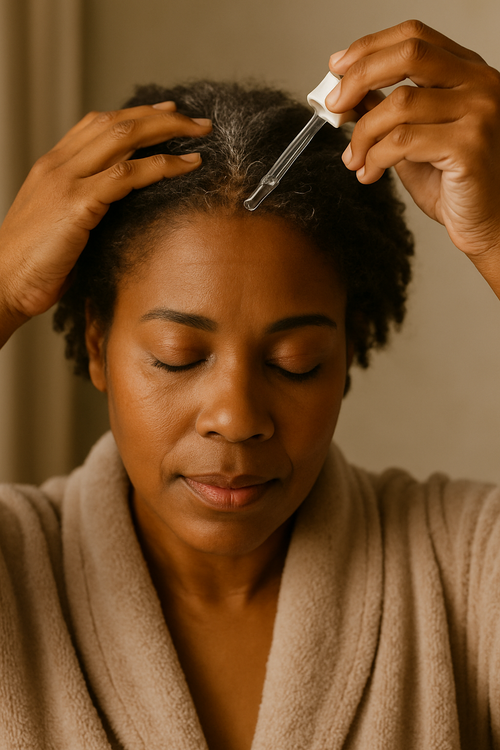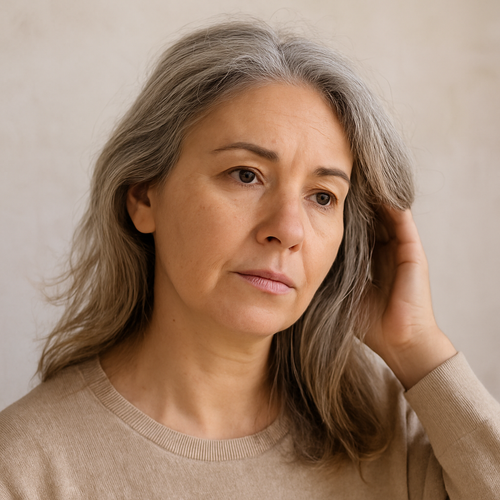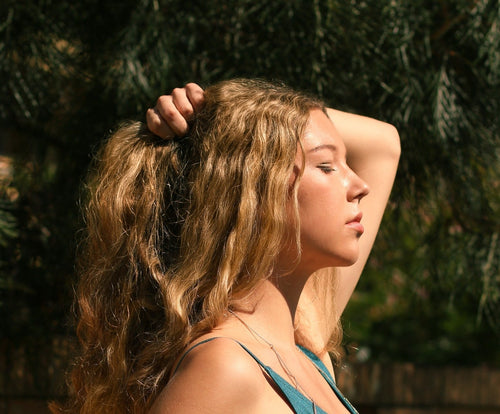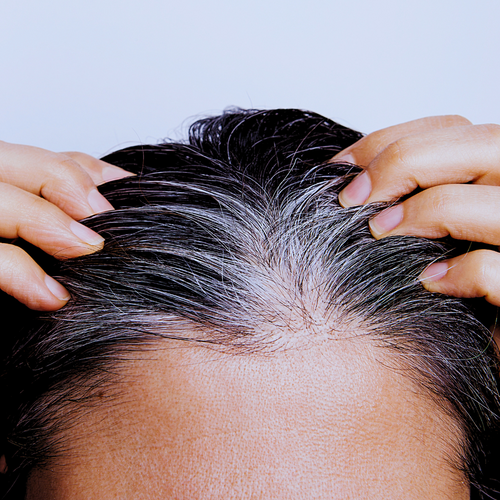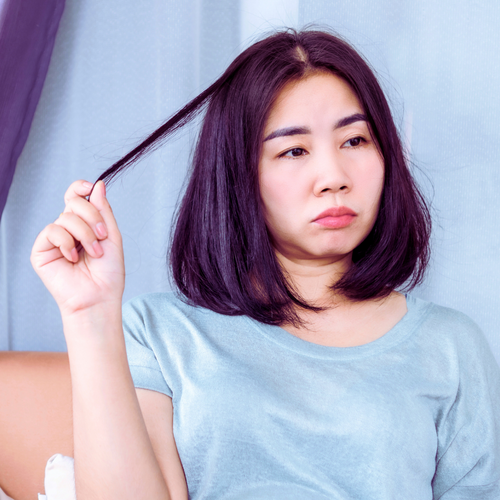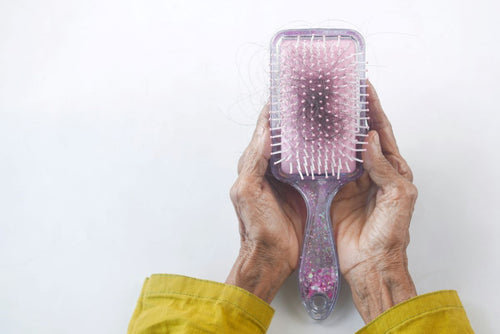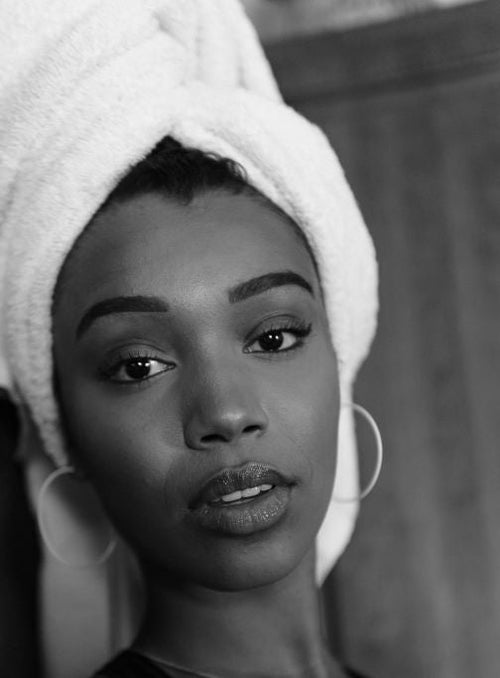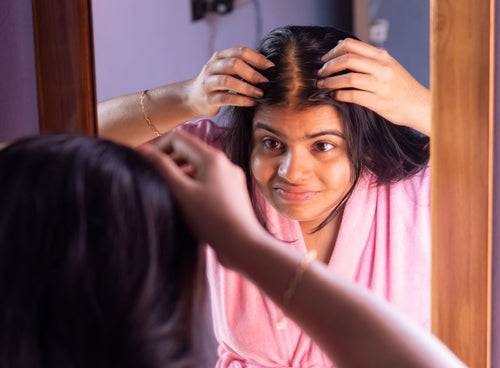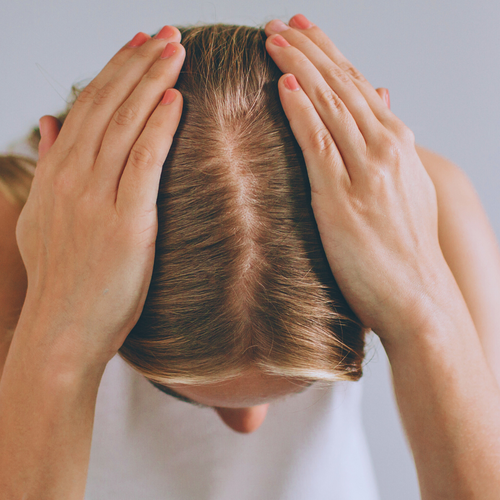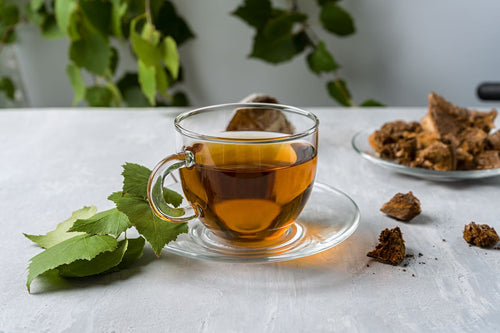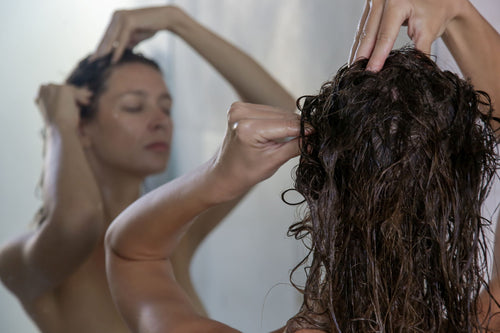Hair loss is an extremely common concern, and it affects millions of people all over the world. In the United States alone, approximately 80 million people experience male or female pattern hair loss. Hair loss can be temporary or permanent, and can affect only a small area of the scalp, or can cause complete balding. There are many causes of hair loss, including genetics, hormonal changes, medical conditions, and stress.
Stress-induced hair loss, known as telogen effluvium, is particularly common, and can be a result of a physical stress, such as an illness or a surgery, or from an emotional stress, such as a divorce or work-related problems.
This article will explore the top 5 foods that can help prevent hair loss. Each of the 5 foods that we’ll discuss belong to different categories such as anti-inflammatory, healthy fats, vitamins, and minerals. Taking a look at your diet and making informed food choices is an important step in achieving healthy hair and conquering hair loss.
Understanding Hair Loss
Hair loss, which is known by the medical term ‘alopecia,’ can manifest in many different ways. Androgenetic alopecia, or male and female pattern baldness, is the most common type, and it affects over 50 million men and 30 million women in the United States alone. This condition is primarily hereditary and is more common as we age.
Telogen effluvium, on the other hand, is usually a temporary form of hair loss. It can be triggered by stress, illness, medications, or hormonal changes. During stressful periods, a large number of hairs in the growing phase (anagen) of the hair cycle suddenly enter the resting phase (telogen)of the hair cycle. During this resting phase, hair growth typically stops for anywhere between 1 to 6 months (typically about 3 months). When the affected hairs re-enter the growth phase (anagen), the hair strands that had been resting are all shed, resulting in noticeable (and distressing!) hair shedding.
Stress-induced hair loss may be becoming more common at younger ages, with many millennials reporting noticeable hair shedding and hair loss associated with stressful life events.
Alopecia areata is another form of hair loss that is commonly seen. It is an autoimmune disorder, where the immune system attacks hair follicles, leading to round bald spots and a patchy beard. This condition affects about 2% of people and can occur at any age.
Nutritional and dietary deficiencies also play a large role in hair health. Lack of essential nutrients such as iron, protein, and vitamins can weaken hair shafts, leading to increased hair fall, hair breakage, and slow regrowth. Addressing these deficiencies through dietary changes can significantly improve hair health and reduce hair loss.
Influence of Foods on Hair Health
Diet plays a major role in maintaining healthy hair. The cells in your hair follicles are among the most metabolically active and energy demanding cells in the body. They require a constant supply of nutrients.
Deficiencies in key nutrients can disrupt the hair growth cycle, leading to hair loss. Eating a balanced diet that is rich in essential nutrients can help maintain hair strength and encourage growth. Foods rich in omega-3 fatty acids, vitamins (A, C, D, E), biotin, iron, and zinc are particularly beneficial for hair health.
Research has shown that certain types of diets can influence the health of your hair! For instance, a 2018 study found that a Mediterranean diet, high in fresh vegetables and herbs, was associated with a reduced risk of genetic hair thinning. Typically, a Mediterranean diet is high in whole grains, fish, and healthy fats, all of which are key to healthy hair and scalp.

Top 5 Foods to Prevent Hair Loss
1. Salmon (Healthy Fats)
Category: Healthy Fats
Benefits: Salmon is rich in omega-3 fatty acids, which are essential for maintaining healthy hair. Omega-3s help nourish hair follicles, support hair growth, and reduce inflammation which can lead to hair loss and scalp irritation. A study published in the Journal of Cosmetic Dermatology found that omega-3 and omega-6 supplements reduced hair loss and improved hair thickness. Omega-3 fatty acids also support scalp health, which is important for maintaining the hair growth cycle.
Salmon also contains vitamin D and protein, which are vital for hair health. Vitamin D can help create new hair follicles and promote thicker hair, while protein helps in the formation of keratin, the primary component of hair. Regular consumption of salmon can help boost

2. Spinach (Vitamins)
Category: Vitamins
Benefits: Spinach is packed with vitamins A and C, iron, and folate, all of which are important for the health of your hair. Vitamin A helps regulate sebum, which is key to scalp health. Vitamin C aids in collagen production. Just as collagen is important for the strength of skin, it is also important for the strength of your scalp and hair follicles—scalp is skin, afterall! Iron deficiency is a well-known cause of hair loss, and spinach provides a good amount of iron, which can be especially beneficial for those with iron-deficiency anemia.
In addition to its high vitamin content, spinach is also rich in antioxidants, which help protect hair follicles from damage by free radicals. The high folate content supports the production of red blood cells, enhancing the supply of oxygen and other nutrients to hair follicles. Regular inclusion of spinach in the diet can help maintain a healthy scalp and strong hair.

3. Eggs (Proteins)
Category: Proteins
Benefits: Eggs are an excellent source of protein and biotin, both essential for hair growth. Hair follicles are primarily made of protein, and a lack of protein in the diet can lead to hair loss and thinning. Biotin, a B-vitamin, strengthens hair and can improve growth when there is a biotin deficiency.
Eggs also contain other beneficial nutrients like zinc, selenium, and other hair-healthy vitamins. These nutrients work together to promote healthy hair growth, reduce damaging free radicals, and prevent hair thinning. Consuming eggs regularly can help improve hair strength and resilience.

4. Sweet Potatoes (Beta-Carotene)
Category: Beta-Carotene
Benefits: Sweet potatoes are rich in beta-carotene, which the body converts into vitamin A. Vitamin A is crucial for cell growth, including hair follicle cells, and it also helps in the regulation of sebum, which is important for a healthy scalp.
Beta-carotene also has antioxidant properties that protect hair follicles from damage. Consuming foods rich in beta-carotene might improve the quality of the hair, making sweet potatoes an excellent choice for those looking to enhance their hair health naturally.

5. Nuts (Zinc)
Category: Minerals
Benefits: Nuts, particularly almonds, cashews and pine nuts, are rich in zinc, a mineral that plays a vital role in hair tissue growth and repair. Zinc is important for hormonal control, follicle function and repair of injuries.
Zinc deficiency can lead to hair loss, and ensuring an adequate intake of this mineral helps maintain a healthy scalp and hair. A study in Annals of Dermatology reported that zinc supplementation improved hair regrowth in a hair loss patient with with zinc deficiency.
Nuts also provide healthy fats, vitamin E, and biotin, all of which are important for maintaining strong and healthy hair. Vitamin E is an antioxidant, which reduces the impact of damaging free radicals on the skin and hair. Regular consumption of nuts can help support healthy hair
Informational Table: Foods for Hair Loss

The Role of Hydration in Hair Health
While diet and nutrition are crucial for hair health, hydration also plays a significant role. Hair is composed of about 15% water, and staying hydrated is essential for maintaining hair elasticity and preventing dryness, brittleness and excessive hair breakage. Drinking enough water everyday ensures that hair follicles receive the necessary moisture to remain healthy and strong.
While the top five foods listed are among the best for hair loss, several other foods can also contribute to healthy hair:
Other Foods For Hair Health
1. Avocados (Healthy Fats and Vitamins)
Avocados are rich in healthy fats, vitamin E, and biotin. Vitamin E is an antioxidant that helps protect the scalp from oxidative stress, while biotin is important for hair strength and growth. Diets sufficient in biotin and vitamin E are needed for strong hair and healthy scalp.
2. Berries (Antioxidants)
Berries such as strawberries, blueberries, and raspberries are high in antioxidants and vitamins that promote hair health. Vitamin C in berries helps the body produce collagen, a protein that is essential for scalp and follicle health, and can help maintain stronger hair.
3. Greek Yogurt (Proteins and Probiotics)
Greek yogurt is an excellent source of protein and probiotics. Protein is essential for hair structure and strength, while probiotics help maintain a healthy gut microbiome, which can indirectly support hair health by improving nutrient absorption.
4. Legumes (Iron and Proteins)
Legumes, including beans and lentils, are rich in iron and protein. Iron is key for oxygen transport to hair follicles and promoting healthy hair growth. Protein is a fundamental building block of the hair, and insufficient protein leads to weak hair strands and hair loss.

5. Seeds (Vitamins and Minerals)
Seeds like chia seeds, flaxseeds, and pumpkin seeds are packed with nutrients beneficial for hair health. They provide omega-3 fatty acids, zinc, and vitamin E, all of which support hair growth and strength.
Frequently Asked Questions About Foods for Hair Loss
What are the most common causes of hair loss?
Hair loss can be caused by a variety of things, including genetics, hormonal changes, medical conditions, medications, and stress. The most common type is androgenetic alopecia, also known as male or female pattern baldness. This is a hereditary hair loss that occurs with aging.
How can diet impact hair health?
A balanced diet rich in essential nutrients supports overall hair health. Nutrients like omega-3 fatty acids, vitamins (A, C, and biotin), and minerals (iron and zinc) are particularly important for maintaining strong and healthy hair.
Are there any foods to avoid for better hair health?
In general, it's good to avoid excessive consumption of processed foods, sugary snacks, and high-glycemic-index foods, as these types of foods can lead to inflammation and hormonal imbalances, and could potentially worsen hair loss and scalp inflammation.
Can supplements help prevent hair loss?
Supplements can be beneficial, especially if you have deficiencies in certain nutrients. It’s always best to try to get your nutrients from a balanced diet. However, supplements can help fill in the gap when your diet isn’t as ideal as it could or should be. Always talk to your doctor before starting any supplements.
How long does it take to see results from dietary changes?
The time it takes to see results from dietary changes can vary depending on the individual, their medical condition, and the severity of the hair loss. Generally, it can take several months of consistent healthy eating to notice an improvement in hair health. Patience and persistence are key.
What other lifestyle changes can help prevent hair loss?
In addition to a balanced diet, other lifestyle changes that can help prevent hair loss include reducing stress through practices like meditation and yoga, mindful breathing, and spending time in outdoor spaces. Including adaptogenic supplements for the scalp can also help support healthy hair growth and reduce the impact of stress.
What other lifestyle changes can help prevent hair loss?
In addition to a balanced diet, other lifestyle changes that can help prevent hair loss include reducing your stress through by engaging in activities like meditation and yoga, getting regular exercise, ensuring adequate sleep, and avoiding harmful hair practices such as excessive heat styling and tight hairstyles that cause traction alopecia.
Stress reduction is particularly important, as chronic stress can lead to telogen effluvium, a condition where hair follicles enter the resting phase prematurely and fall out in large amounts. Adaptogens like ashwagandha can help reduce the impact of stress on your body and hair.
Takeaway
Preventing hair loss involves a multifaceted approach, including a eating a healthy diet rich in essential nutrients. Foods like salmon, spinach, eggs, sweet potatoes, and nuts provide vital nutrients that support hair health and can help reduce hair loss.
By incorporating these foods into your diet, you can take a proactive step towards maintaining strong, healthy hair. Always consult with a healthcare provider for personalized advice and before making significant changes to your diet or supplement regimen.
References
Medical News Today. Causes and treatments for thinning hair
Hughes EC; Syed HA; Saleh D. Telogen Effluvium
Park H, Kim CW, Kim SS, et al. The therapeutic effect and the changed serum zinc level after zinc supplementation in alopecia areata patients who had a low serum zinc level.
Alopecia Areata National Alopecia Areata Foundation





